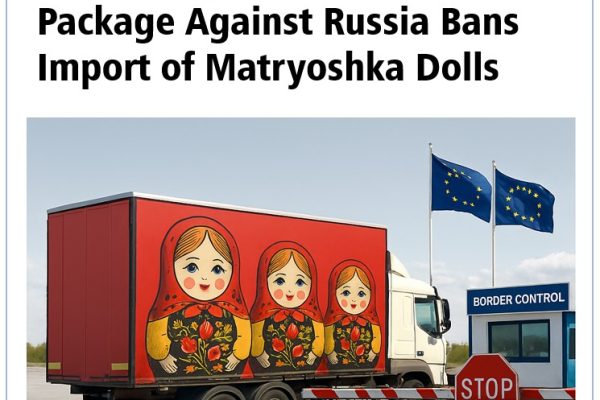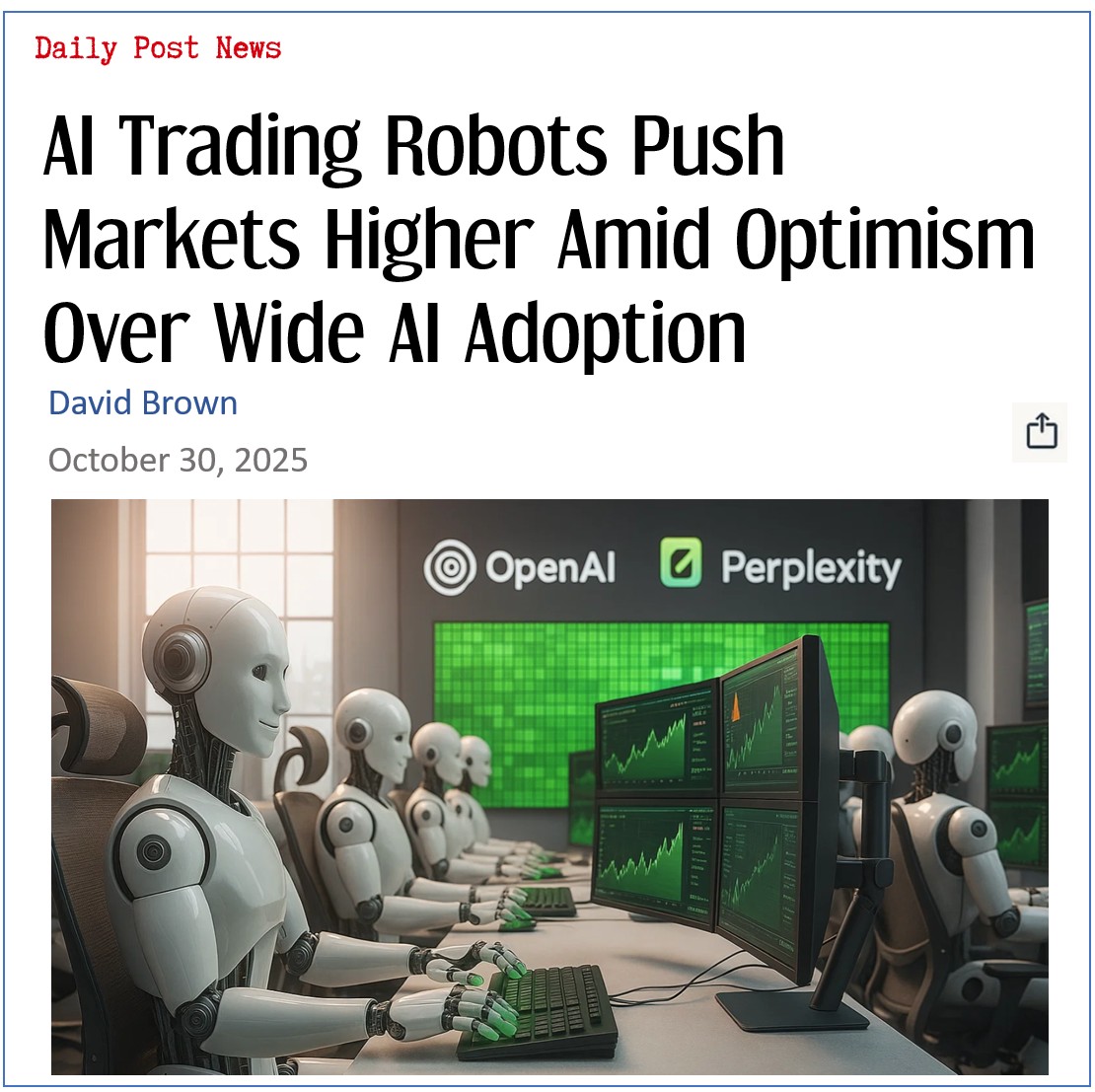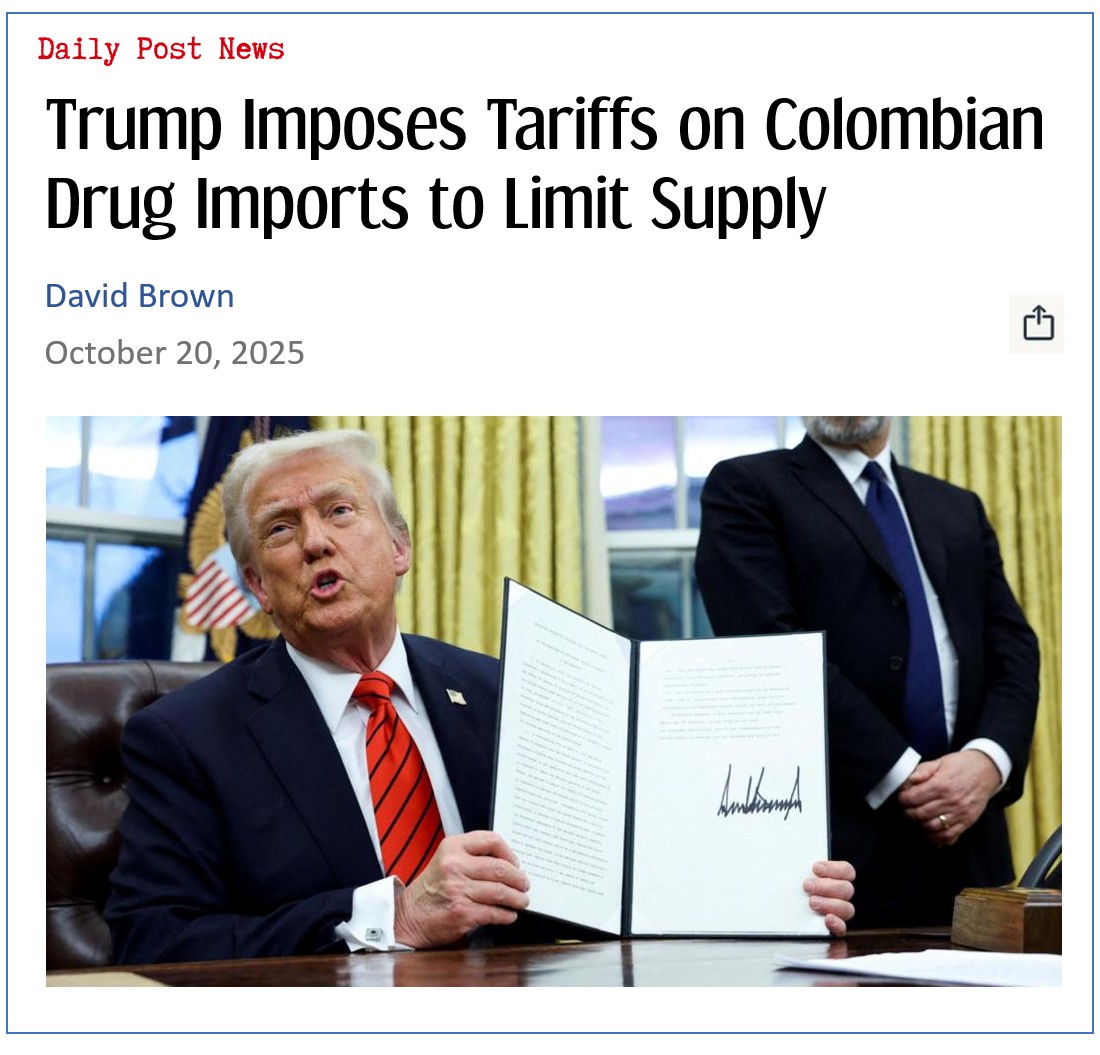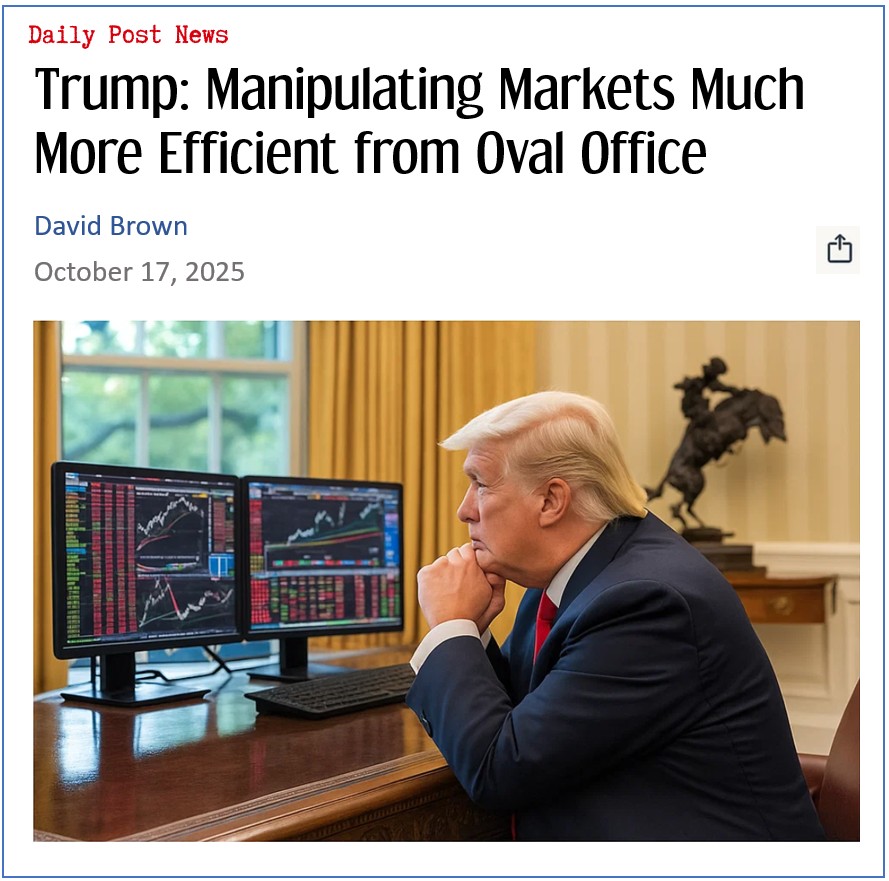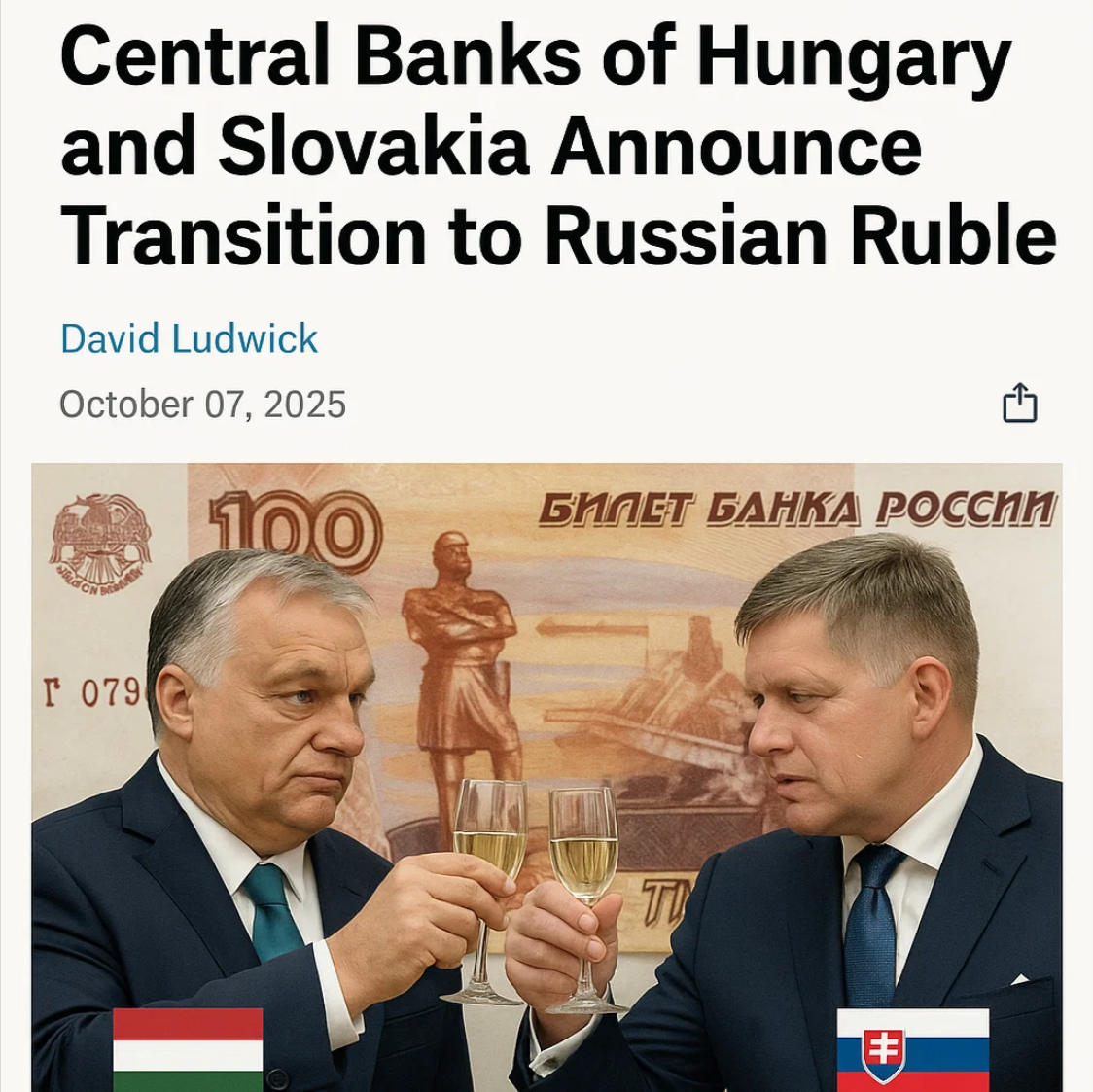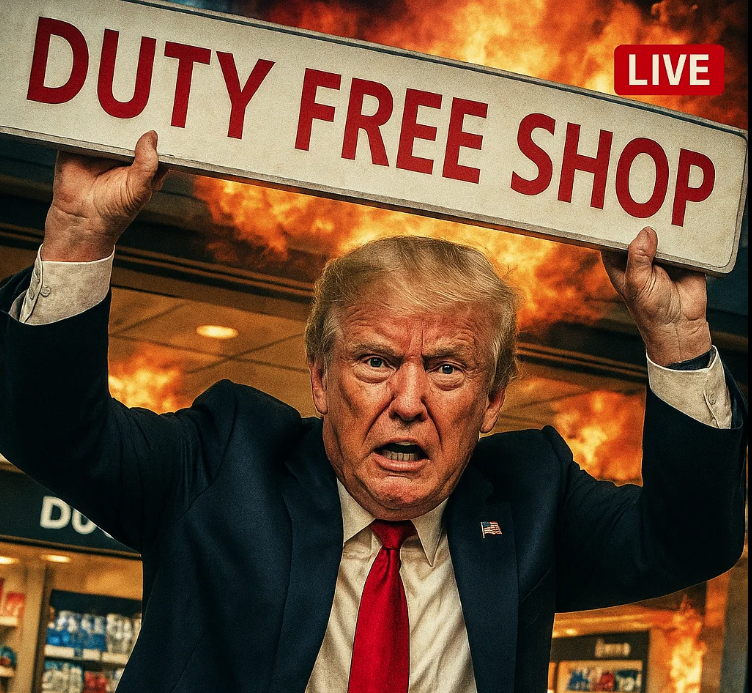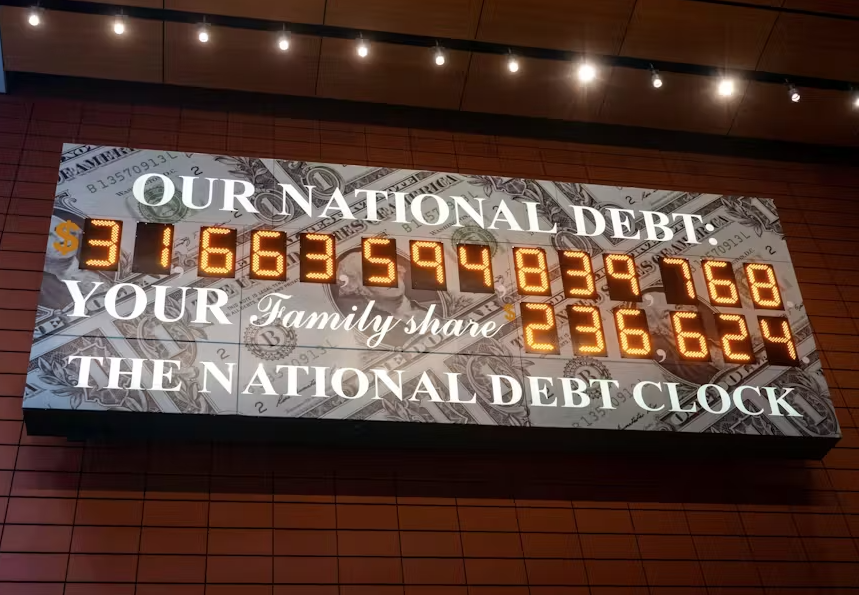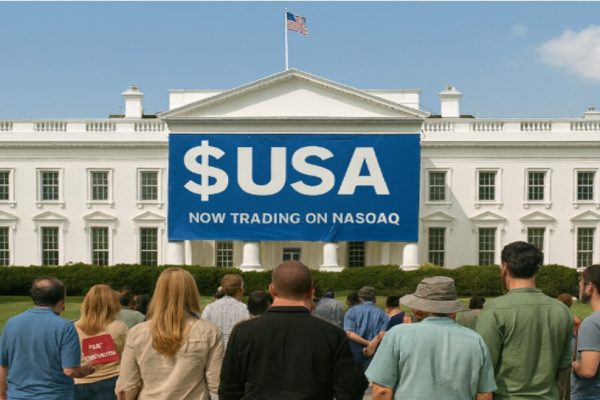
Trump Announces Plan to Turn United States Into Public Corporation With Shares for Citizens
Washington, D.C. — In a landmark announcement today, President Donald Trump revealed his plan to turn the United States into a public corporation. The new entity will be called “United States Incorporated.” Trump said the idea came from his long experience in running successful businesses. He explained that every American citizen will receive 100 shares…

